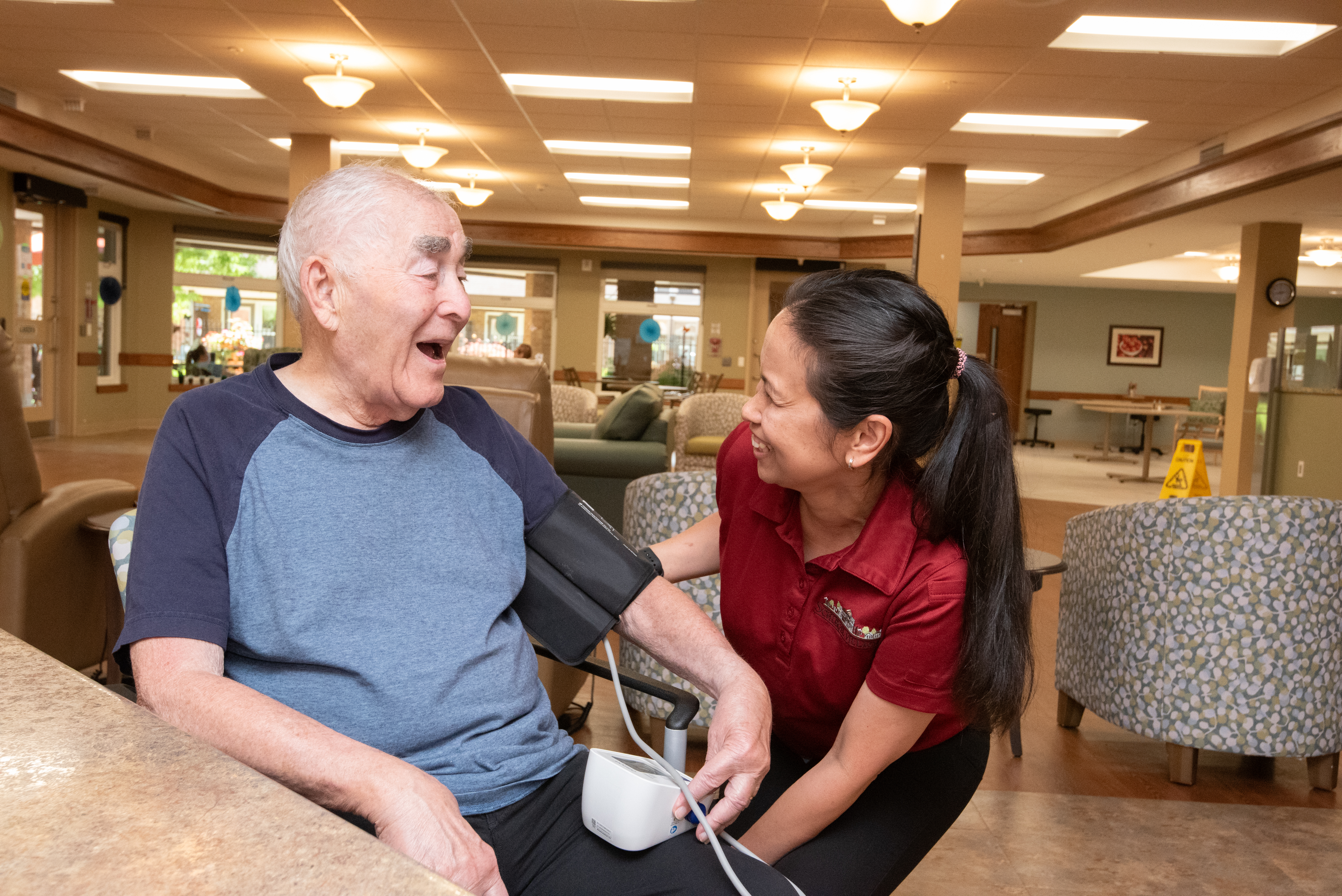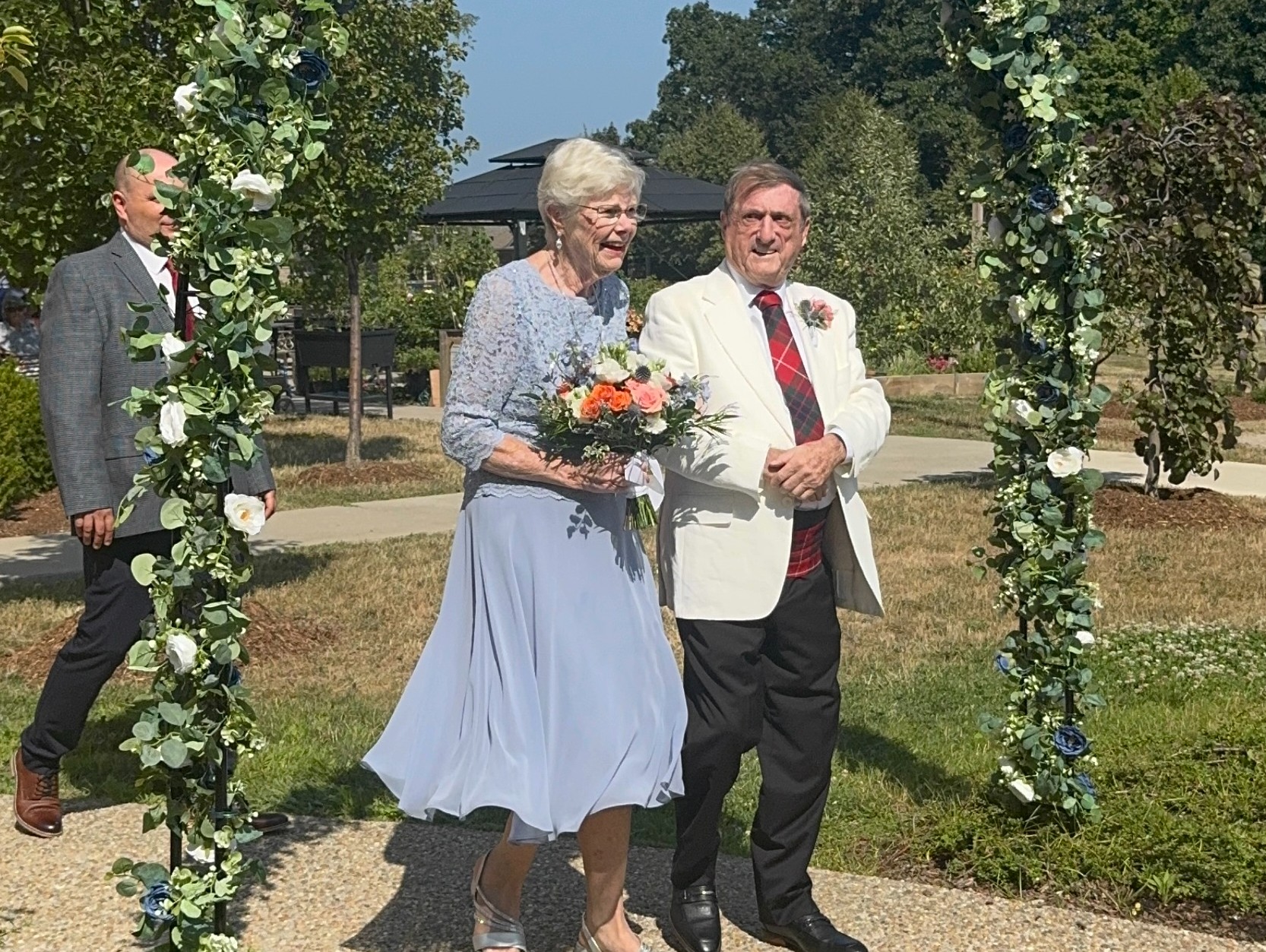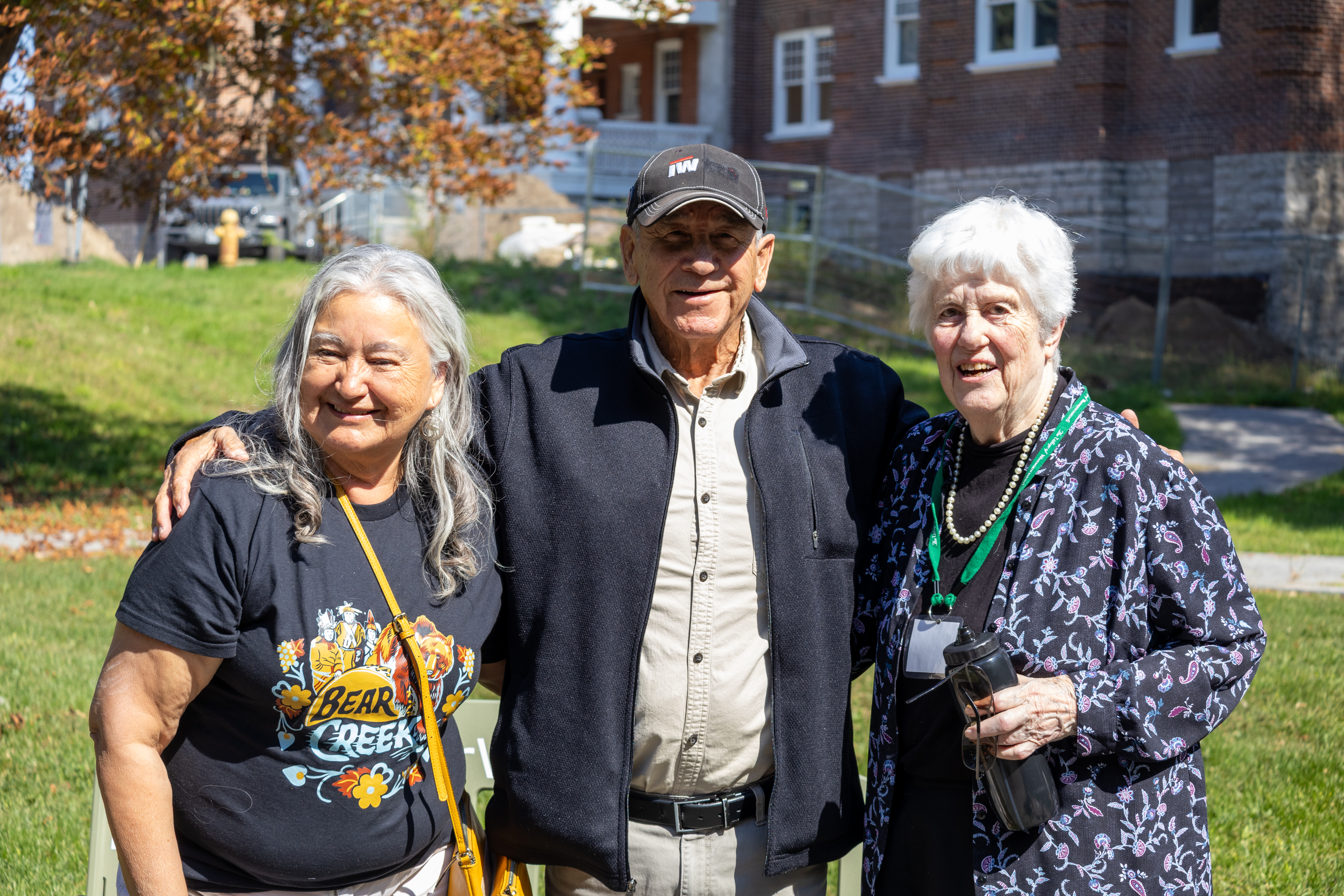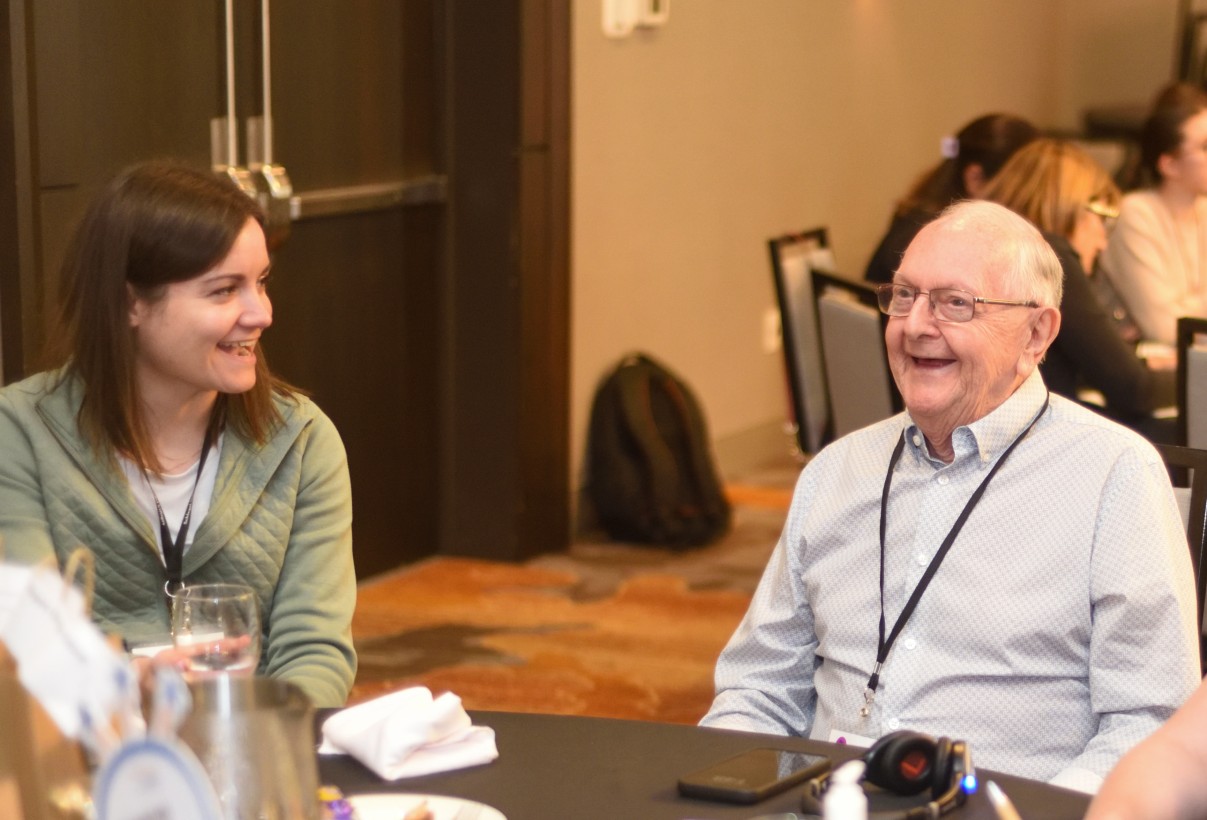Esther Asare has heard all of the conflicting information surrounding COVID-19 vaccinations shared through seemingly infinite spaces online; the hesitancy among those who are unsure and the outright mistrust of those who float in the false facts of conspiracy.
She chose to look past it all when her turn to take the vaccine arrived, and she listened within herself.
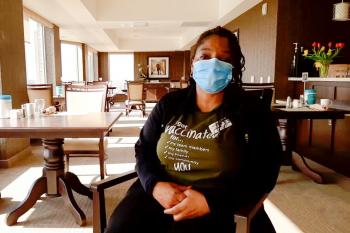
Irene Chinyenze shares her insights on COVID-19 vaccination,
encouraging others to protect themselves against the virus.
“I believe everybody should try and think for themselves,” Esther says. “I don’t really like to ask around too much because if you ask around too much, you get discouraged.”
Esther is the assistant director of environmental services in the Village of Erin Meadows, which in both long-term care and retirement has felt the great weight of COVID-19 throughout the pandemic. Every corner of the Village has been touched, lives were lost and dozens of team members in the large Village contracted the virus at some point over the past year. As she and her fellow team members share their thoughts on vaccinations during conversations near the end of March, the long-term care home has just come out of outbreak. Two days later, three more positive team member cases will put it back into lockdown.
Case numbers in the province are rising and while nearly 100 percent of Ontario’s LTC and Retirement residents are protected through vaccination, an average of approximately 65 percent of the caregivers who support them have been inoculated. Unfortunately, as March folds into April, more than a year after global pandemic was declared, the safe hope of vaccinations still inspire reluctance.
“There’s lots of negativity,” says Esther, who came to Canada from Ghana, “but if you think for yourself you won’t take the negative path. Think of your family, think of your coworkers. As we have noticed with this virus, we don’t even know where it is. If we know where it is, we would not step on it, but we don’t know where it is, so just to protect ourselves, I think the best thing for us is to take the vaccine and live a happy life.”
Vaccine hesitancy is something Ester’s coworker Irene Chinyenze has also heard much about in the past few months. Irene is originally from Zimbabwe and she speaks about the misconceptions she has heard in her community.
“Vaccinations,” she says, “continue to be a subject on everyone’s mouth with my black sisters and black brothers.” Some of the myths floating through social media falsely suggest the vaccines are targeting black people or they will alter DNA and control the black community, Irene says. “That worries me because from the knowledge that I have at the Village of Erin Meadows, I do not believe that.”
Mistrust in the healthcare sector can be a cultural phenomenon, existing in the black community, as it does in many others, from those of eastern European heritage to South Asian, LatinX and indigenous communities. According to a recent editorial in the British Medical Journal, “trust is eroded by systemic racism and discrimination, previous unethical healthcare research in black populations, under-representation of minorities in health research and vaccine trials, and negative experiences within a culturally insensitive healthcare system.”
Irene had always looked forward to the arrival of a safe vaccination option, however. When COVID-19 began its spread and people grew ill and began dying, she hoped for a vaccine so she could protect her family, the residents she serves and herself.
She has no regrets.
“I would like to encourage all of my black sisters and black brothers to all go and get vaccinated because you are not only protecting yourself but also protecting everyone around you,” Irene says.
Her coworker at Erin Meadows, Nicola Campbell, agrees. As a personal support worker, she saw the devastating impact of COVID-19 in Peel Region and beyond and how sick people were getting. She also worried about her own health wondering, as a smoker, could her body handle the virus?
“I would encourage everyone to, as soon as it’s available to you, to go ahead and take it because not only is it helping to save your life but everyone around you that you care about,” Nicola says.
Irene Video | Esther Video | Nicola Video
Recent Vaccine Facts:
US Data: https://www.cdc.gov/coronavirus/2019-ncov/vaccines/safety/adverse-events.html
- 126 million doses of COVID-19 vaccines were administered in the United States from December 14, 2020, through March 22, 2021. During this time, VAERS received 2,216 reports of death (0.0018%) among people who received a COVID-19 vaccine. CDC and FDA physicians review each case report of death as soon as notified and CDC requests medical records to further assess reports. A review of available clinical information including death certificates, autopsy, and medical records revealed no evidence that vaccination contributed to patient deaths. CDC and FDA will continue to investigate reports of adverse events, including deaths, reported to VAERS.
- Anaphylaxis after COVID-19 vaccination is rare. If this occurs, vaccination providers can effectively and immediately treat the reaction.
- CDC and FDA scientists have evaluated reports from people who experienced a type of severe allergic reaction—anaphylaxis—after getting a COVID-19 vaccine. Anaphylaxis after COVID-19 vaccination is rare and occurred in approximately 2 to 5 people per million vaccinated in the United States based on events reported to VAERS. This kind of allergic reaction almost always occurs within 30 minutes after vaccination. Fortunately, vaccination providers have medicines available to effectively and immediately treat patients who experience anaphylaxis following vaccination. Learn more about COVID-19 vaccines and allergic reactions.
Canadian Data (up to and including March 19, 2021) https://health-infobase.canada.ca/covid-19/vaccine-safety/
- 3,729,312 doses given
- All reports of adverse events following immunization received by Health Canada and PHAC are included in this report, regardless of whether they have been linked to the vaccines. This is because we need to look at all the data available to us so we can detect any early signals of an issue.
- Health Canada, PHAC, the provinces and territories, and manufacturers continue to closely monitor the safety of COVID-19 vaccines. Serious events will be reviewed to determine if there is a new safety signal.
- The 2,530 individual reports represent 2,530 people who reported one or more adverse events. Among the 2,530 reports, the most frequently reported adverse events are presented in Figure 4.
- Among the 320 serious reports, the most frequently reported adverse event was anaphylaxis.
- The majority of these adverse events are non-serious.
